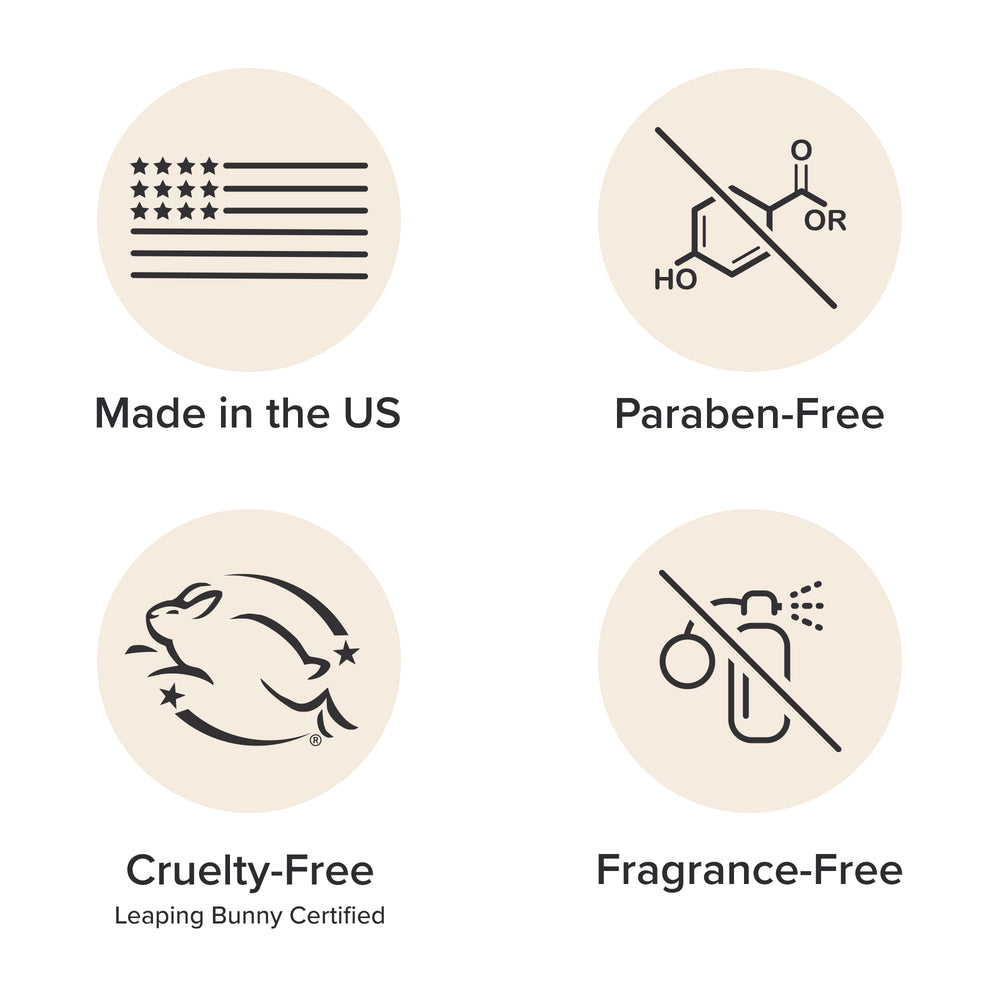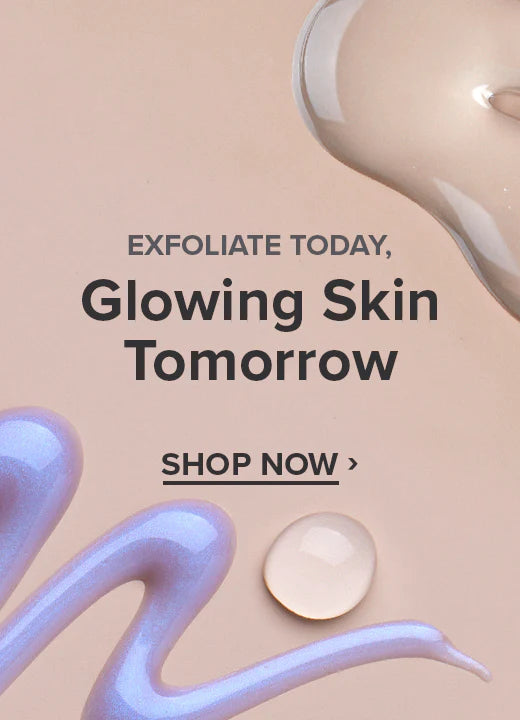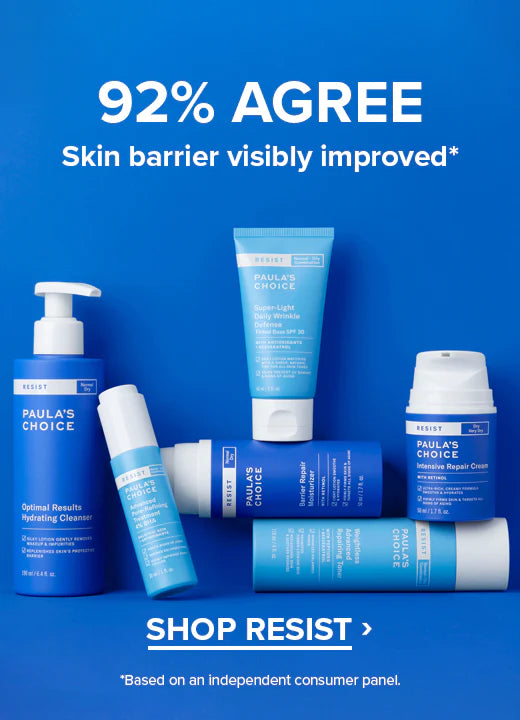Written by: Bryan Barron
Medically Reviewed by: Debra Jaliman MD Board-Certified Dermatologist
Updated on: 3/13/2024
We’re often asked about the dos and don’ts of using retinol: Do alpha or beta hydroxy acid (AHA and BHA) exfoliants “deactivate” retinol or reduce its effectiveness? Should I only use retinol at night? Are retinol products incompatible with vitamin C products? Simply stated, No. We’ve seen no scientific research to indicate any of this is true.
There’s also a common fear that retinol might irritate skin. Although it’s true that not everyone can use every skin care product with success, the formulation or other problem ingredients are often the culprit—not necessarily the retinol. It's important to choose only well-formulated products that steer clear of irritating ingredients, and to monitor how your skin responds to different strengths of retinol.
Our aim is to help you achieve the best skin of your life, and that starts with accurate information. As always, we turn to research to put an end to any worry or confusion.
Myth #1: Retinol exfoliates skin.
It’s a popular misconception that retinol is an exfoliant. It isn’t, because it cannot break the bonds that hold dead skin cells to the surface. Retinol is an antioxidant, and an important skin-restoring ingredient that can impact how skin cells mature. As a result, it enhances multiple aspects of skin, making it look healthier, smoother, and more vibrant.
And, while retinol can cause a flaking reaction for some people, this (often temporary) side effect shouldn’t be mistaken for exfoliation. AHAs and BHA help to imperceptibly shed dead skin from its surface. You don’t see or feel healthy, normal exfoliation, you just see smooth, healthy skin.
If you do experience flaking from using retinol, it may be that you’re using a retinol product that’s just too potent for your skin or you’re applying the retinol product too often. Switching to a lower strength or applying your current retinol product less often could solve the problem.
Myth #2: Retinol is only for mature skin.
Retinol and retinoids (both are vitamin A derivatives) are often mistaken as ingredients solely for mature skin due to their ability to reduce the look of fine lines and wrinkles, tackle age and damage-related discolorations and promote firmer skin (1). However, retinol and retinoids aren’t just for mature skin.
The American Academy of Dermatology Association recommends adding vitamin A derivates into your skin care routine in your 20s when skin's natural cell turnover process slows (2). Beginning use of a topical retinol during this decade of your life can help correct this slow-down and keep skin healthy.
If you suffer from acne-prone skin, your dermatologist might prescribe you an OTC retinoid product before your 20s. This is because retinol and retinoids are also used to help combat acne (3). However, preteens and teens shouldn’t use retinol or retinoids unless prescribed to them by a dermatologist because young skin doesn’t need retinol as it’s still functioning in a healthy matter.
Myth #3: You can't use retinol or retinoids during the daytime.
It’s perfectly fine to use retinol and retinoid products during the day, as long as you wear sunscreen over them. Research has shown that retinol works well under SPF-rated products, and that vitamins A, C, and E—even in combination—remain stable and effective under a broad-spectrum sunscreen (4).
Remember: Retinol plays its part to help skin look younger, but sunscreen is the first and most formidable defense in helping skin rebuff signs of aging like wrinkles, uneven skin tone, discolorations, and loss of firmness (5, 6, 7, 8, 9).
Myth #4: You shouldn't combine retinol with vitamin C.
A recent study revealed two important facts: not only did pairing vitamin C and retinol prove effective, but the two worked perfectly together to defend skin against environmental assault when applied under a sunscreen.
The (misguided) concern about combining these ingredients is also based on misconceptions about pH and acidity. Vitamin C, especially ascorbic acid, requires a low pH to remain stable—or no pH, if there isn’t any water in the formula. The result is a more acidic environment, but we know acidity doesn’t deactivate retinol; after all, skin’s pH is naturally acidic, and retinol is found naturally in skin.
Better yet, research has shown that a combination of vitamins in cosmetics will provide optimal results—including vitamins A (another name for retinol), C, and E (6). Retinol and vitamin C together actually creates a better environment for retinol by stabilizing it, extending its effectiveness. It turns out that using an antioxidant serum with retinol can help your skin reap all of retinol’s benefits.

Myth #5: You can't use retinol with a leave-on exfoliant.
No research has ever demonstrated or concluded that alpha or beta hydroxy acid (AHA or BHA) exfoliants make retinol any less effective when used in the same skin care routine. It’s just one of those myths that gets repeated so often that people—even many we consider skin care experts—tend to believe it.
Well-formulated leave-on exfoliants have a low pH, which is what makes them effective. It’s common for people to wonder if that pH level disrupts retinol’s ability to work its gentle, skin-smoothing magic. Rest assured, it doesn’t. Just like most skin care rumors, this myth sprang from a misunderstanding about the research. Only one study mentions the issue of pH affecting retinol’s activity, but that study was performed on proteins in a petri dish, not on real skin—and it concluded that it’s unknown if these results would be the same on intact skin.
Whenever we see a comment or recommendation about retinol’s incompatibility with AHA or BHA exfoliants, it’s never supported by research. What research does show is that using retinol products with an effective AHA or BHA product increases the benefits of each; it doesn’t decrease them. What's more, this combination can be an effective approach suitable even for those dealing with milia-prone skin. If anything, AHAs and BHA help products deliver their vitally important ingredients (like retinol) by removing the dead skin that impedes their absorption.
Myth #6: Retinoids are weaker than retinol.
Some retinoids are more potent than retinol and others aren’t. It all depends on how many steps the retinoid in question requires to convert to retinoic acid, which is the form of vitamin A that the skin can work with.
Retinol requires two conversions to turn into retinoic acid (11). This makes it less potent than the retinoid retinaldehyde (AKA retinal) which only requires one conversion to become retinoic acid and more potent than retinyl palmitate, which requires three conversions.
The bottom line: Retinol is only one ingredient, but there are six classes of retinoids, each with varying potencies (12). Not all are going to be stronger and not all are going to be weaker!
Learn more about retinol.
References for this information:
- Clinics in Dermatology, Nov-Dec 2008, pages 633-635
- American Academy of Dermatology Association, Accessed February 2024, Webpage
- Canadian Medical Association Journal, February 2016, pages 118-126
- The Journal of Pathology, January 2007, pages 241–251
- Toxicological Research, March 2010, pages 61–66
- International Journal of Cosmetic Science, February 2017, pages 56-65
- Journal of Cosmetic Dermatology, March 2016, pages 49-57
- Journal of Drugs in Dermatology, March 2015, pages 271-280
- Clinical Interventions in Aging, December 2006, pages 327–348
- Dermatology, May 2014, pages 314–325
- Advances in Dermatology and Allergology, August 2019, pages 392-397
- Journal of Cutaneous Medicine and Surgery, January 2022, pages 71-78





